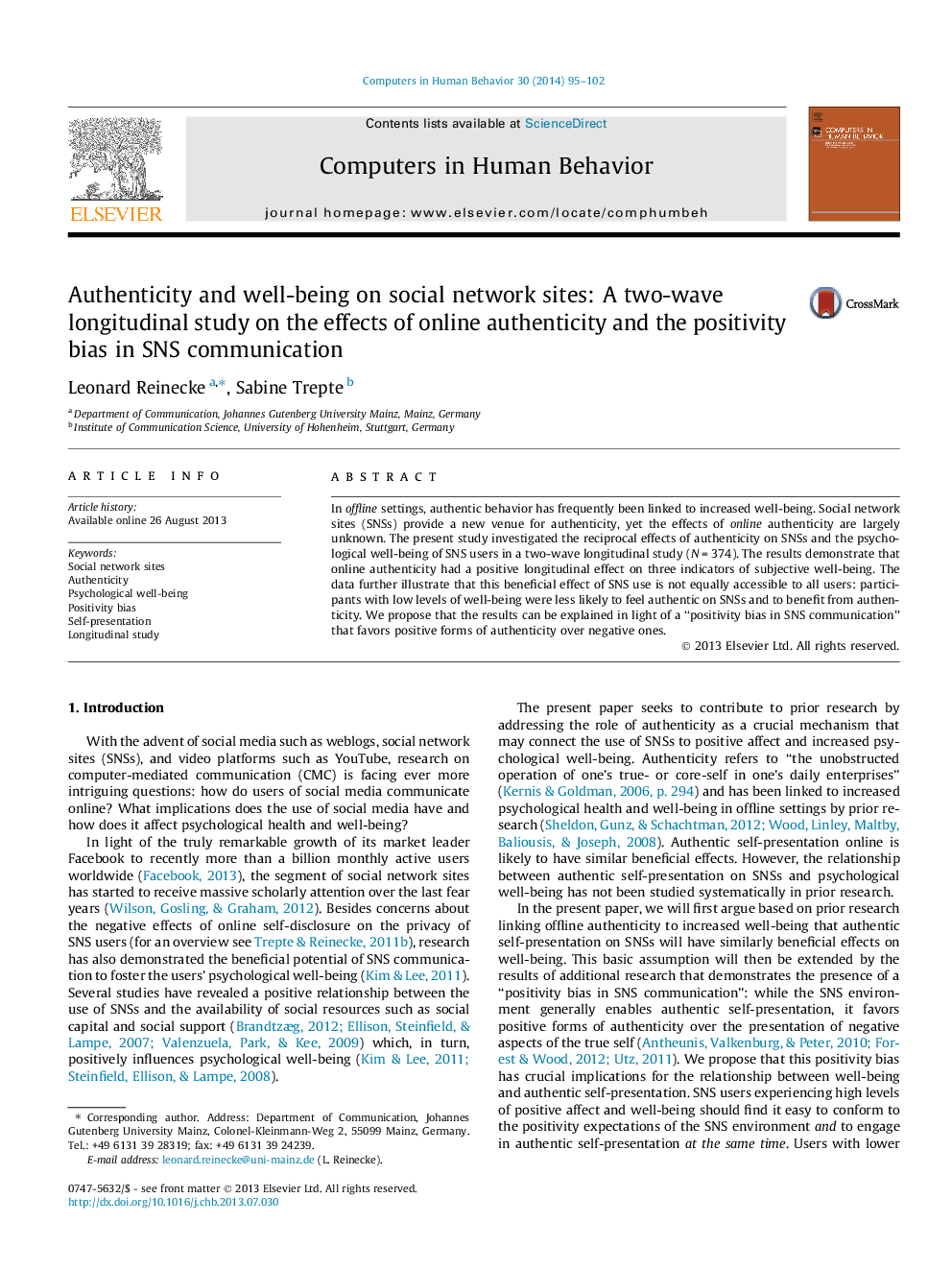| Article ID | Journal | Published Year | Pages | File Type |
|---|---|---|---|---|
| 350657 | Computers in Human Behavior | 2014 | 8 Pages |
•Effects of online authenticity on social network sites were investigated.•374 participants responded to a two-wave longitudinal study.•Online authenticity had a positive longitudinal effect on psychological well-being.•Users with higher well-being were more likely to be authentic online, suggesting a “positivity bias in SNS communication”.
In offline settings, authentic behavior has frequently been linked to increased well-being. Social network sites (SNSs) provide a new venue for authenticity, yet the effects of online authenticity are largely unknown. The present study investigated the reciprocal effects of authenticity on SNSs and the psychological well-being of SNS users in a two-wave longitudinal study (N = 374). The results demonstrate that online authenticity had a positive longitudinal effect on three indicators of subjective well-being. The data further illustrate that this beneficial effect of SNS use is not equally accessible to all users: participants with low levels of well-being were less likely to feel authentic on SNSs and to benefit from authenticity. We propose that the results can be explained in light of a “positivity bias in SNS communication” that favors positive forms of authenticity over negative ones.
